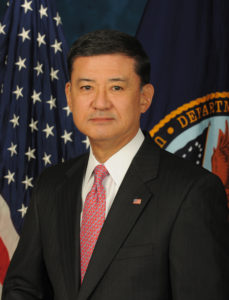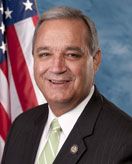Report confirms “significant delays” in Veterans Affairs health care
Daily News Article — Posted on May 29, 2014
 (by Jake Miller, CBS News) – An interim report released Wednesday by the Veterans Affairs (VA) Office of Inspector General (IG) concluded that patients experienced “significant delays” in treatment at a Veterans Affairs (VA) health care facility in Phoenix, Ariz., providing the administration’s first official confirmation of problems that have been widely reported in recent weeks.
(by Jake Miller, CBS News) – An interim report released Wednesday by the Veterans Affairs (VA) Office of Inspector General (IG) concluded that patients experienced “significant delays” in treatment at a Veterans Affairs (VA) health care facility in Phoenix, Ariz., providing the administration’s first official confirmation of problems that have been widely reported in recent weeks.
“While our work is not complete, we have substantiated that significant delays in access to care negatively impacted the quality of care at this medical facility,” the report explained.
The IG’s preliminary review found “multiple types of scheduling practices that were not in compliance” with the policies set by the agency. The report cited multiple lists separate from the official electronic waiting list for treatment, saying the additional lists “may be the basis for allegations of creating ‘secret’ waiting lists.”
One of the most damning charges to date has focused on the Phoenix facility’s alleged creation of fake waiting lists to understate the amount of time veterans had been waiting for medical care.
Some veterans passed away while they were awaiting treatment, but the report declined to specifically link those deaths to the creation of false waiting lists, saying more information is needed to establish that connection. “The assessments needed to draw any conclusions require analysis of VA (Veterans Affairs) and non-VA medical records, death certificates, and autopsy results,” the report explained, promising a fuller accounting soon.
The report also found that 1,700 veterans were waiting for a primary care appointment but were not found on any waiting list. “Until that happens, the reported wait time for these veterans has not started,” the authors explained. “Most importantly, these veterans were and continue to be at risk of being forgotten or lost in [the Phoenix facility’s] convoluted scheduling process.”

Eric Shinseki, Secretary of Veterans Affairs
The report recommended that Veterans Affairs (VA) Secretary Eric Shinseki “take immediate action to review and provide appropriate health care to the 1,700 veterans” who were not found on any waiting list.
It also recommended the initiation of a “nationwide review” of veterans on wait lists, to ensure that veterans are seen “in an appropriate time, given their clinical condition.”
Shinseki vowed in a statement released after the report to “aggressively and fully implement” the recommendations from the IG. He also said he had directed the Phoenix facility to “immediately triage each of the 1700 Veterans identified by the IG to bring them timely care.”
The full IG report is expected in August, and it will provide a more comprehensive look at the problems plaguing the Phoenix VA (Veterans Affairs) facility as well as other facilities that have come under scrutiny.
In the meantime, though, Congress is forging ahead with its own efforts to investigate the scandal, which has already generated growing calls for Shinseki’s resignation.

U.S. Rep. Jeff Miller, Chairman, House Veterans Affairs Committee
In a statement, Rep. Jeff Miller, R.-Fla., the chairman of the house Veterans Affairs Committee, said the report “confirmed beyond a shadow of a doubt what was becoming more obvious by the day: wait time schemes and data manipulation are systemic throughout VA and are putting veterans at risk in Phoenix and across the country.”
Miller called on Attorney General Eric Holder to launch a criminal investigation into “VA’s widespread scheduling corruption.” He also called for Shinseki to step down, saying the secretary is a “good man who has served his country honorably, but he failed to get VA’s health care system in order.” Miller had previously said he would wait for the IG report before recommending any personnel changes.
In a news conference on Wednesday, Sen. John McCain, R-Ariz., similarly called for the Department of Justice to launch an investigation and for Shinseki to step down.”If Secretary Shinseki does not step down voluntarily, then I call on the president of the United States to relieve him of his duties — to fire him,” McCain said.
Three VA officials [were] scheduled to testify before Miller’s committee on Wednesday evening as part of a hearing that will examine whether a secret waiting list was created and then destroyed to hide how long veterans waited for care.
Before the hearing, the House will vote on four VA reform bills, including one from former VA surgeon Rep. Dan Benishek, R-Mich., that aims to improve accountability within the agency and make it easier for supervisors to fire ineffective employees and withhold financial bonuses from those who do not make sufficient progress. The bill was introduced in May 2013, a year before the current scandal came to light. …
Reprinted here for educational purposes only. May not be reproduced on other websites without permission from CBS News. Visit the website at cbsnews .com.
Questions
NOTE: “Answers” emails have ended for the school year and will resume September 2nd.
Daily posting will end for the summer on June 13th and will resume August 25th.
1. a) What is the VA?
b) What is the role of the VA Inspector General (IG)?
2. What is significant about the report released Wednesday by the Office of the Inspector General?
3. Describe the findings/conclusions made in the IG’s interim report released Wednesday. (see para. 2-4, 6)
4. What recommendations has the IG’s report made?
5. What has VA Secretary Eric Shinseki vowed to do? What action has he already taken?
6. Many are calling on President Obama to fire Secretary Shinseki. An excerpt from an op-ed posted under “Background” below makes the following points:
- But Congress has known since the 1990s about vets at many VA facilities waiting hundreds of days for care and sometimes dying in line.
- In 1996, Congress passed a law requiring that any vet needing care be seen within 30 days.
- The General Accountability Office (GAO) reported in 2000, and again in 2001, that excessive waiting was still a problem.
- In 2007, and again in 2012, the VA’s own inspector general reported that VA schedulers routinely cheated to hide long waits.
- The abuse was vividly documented in a March 2013 hearing of the House Committee on Veterans Affairs, more than a year before the Phoenix scandal broke. Debra Draper, the GAO’s director of health care, told Congress that the GAO visited four VA medical sites and found that more than half the schedulers were manipulating the system to conceal how long vets wait to see a doctor. Roscoe Butler, an American Legion investigator, described seeing similar tricks. Asked if the VA could correct the problem, Draper was skeptical.
Considering the points above, we also know the following:
- President Obama has been in office for 6 years. An aide said that he is "madder than hell" about possible deadly healthcare delays at the Department of Veterans Affairs and is determined to investigate and fix any flaws in the system.
- Sen. John McCain, R-Ariz., has been in office for over 25 years. He has called for the Department of Justice to launch an investigation and for Shinseki to step down. He said, "If Secretary Shinseki does not step down voluntarily, then I call on the president of the United States to relieve him of his duties -- to fire him."
- Many other Senators and Congressmen are equally outraged.
If the above assertions made by Betsy McCaughey in her op-ed are true, President Obama, the entire Congress and Secretary Shinseki knew about the horrible situation in VA hospitals.
Explain your answers for the following:
a) What responsibility did the Secretary of Veterans Affairs have to reform the system and ensure our veterans were getting the care they deserved?
b) What responsibility did President Obama have to ensure that his appointee was getting the job done and our veterans were getting the care they deserved?
c) What responsibility did Congress have to ensure the system would be fixed and our veterans were getting the care they deserved?
d) Watch the news video under “Resources.” Dr. Foote, who went public with the allegations against the Phoenix Veterans Affairs hospital says those in charge should be prosecuted. What do you think?
e) Discuss your answers to question #6 with a parent. How do your answers compare?
Background
The nation was shocked by charges that more than 1,400 vets lingered and 40 died on a secret waiting list at the Phoenix, Ariz., Veterans Administration medical center. The list was concocted to conceal long waits for care. But what you haven’t heard is even worse: VA hospitals across America are manipulating the official electronic waiting list, and the deadly coverups have been going on for years.
The dirty tricks at the Phoenix VA came to light on April 24 when retired VA physician Sam Foote exposed how the hospital evaded legal requirements that patients be seen promptly. But Congress has known since the 1990s about vets at many VA facilities waiting hundreds of days for care and sometimes dying in line.
In 1996, Congress passed a law requiring that any vet needing care be seen within 30 days. The General Accountability Office reported in 2000, and again in 2001, that excessive waiting was still a problem. In 2007, and again in 2012, the VA’s own inspector general reported that VA schedulers routinely cheated to hide long waits.

Debra Draper - GAO - Director, Health Care
The abuse was vividly documented in a March 2013 hearing of the House Committee on Veterans Affairs, more than a year before the Phoenix scandal broke. Debra Draper, the GAO’s director of health care, told Congress that the GAO visited four VA medical sites and found that more than half the schedulers were manipulating the system to conceal how long vets wait to see a doctor. Roscoe Butler, an American Legion investigator, described seeing similar tricks. Asked if the VA could correct the problem, Draper was skeptical.
Veterans’ demand for medical care exceeds the VA’s capacity. Again and again, VA bureaucrats have responded to that problem by lying, gaming the electronic-monitoring system and making false promises to the public.
All the while, vets suffer needlessly. On Jan. 30, it was disclosed that at least 19 veterans at VA facilities in Columbia South Carolina and Augusta Georgia died in 2010 and 2011 because they had to wait too long for colonoscopies and endoscopies that could’ve diagnosed their cancers while still treatable.
The practical answer is to provide vouchers or health plans for vets who need colonoscopies, heart care, diabetes management and other treatment for non-combat-related conditions so they can escape the wait lists and use civilian doctors and hospitals.
A bipartisan proposal offered by Reps. Peter King (R-LI) and Steve Israel (D-LI) urges that vets needing mental-health care be referred to civilian caregivers. (from a May 5 commentary by Betsy McCaughey at NYPost "The Lying and the Dying")
and from a May 16 commentary by Michael Tanner at NYPost "How VA hospitals are a government-run disaster":
The problems first surfaced in Phoenix, where the wait to receive care at VA facilities had grown so long that 1,400 to 1,600 sick veterans were forced to wait months to see a doctor. As many as 40 veterans reportedly died because they couldn’t get the care they needed. VA administrators tried to cover up the problems by establishing secret waiting lists and falsifying reports.
The scandal has now spread to other veteran facilities. VA employees at an outpatient clinic in Fort Collins, Colo., falsified appointment records to hide the fact that as many as 6,300 veterans treated at the outpatient clinic waited months to be seen for treatment. In Wyoming, whistleblowers have accused officials of manipulating records to hide wait times.
VA officers in San Antonio and Austin, Texas, have been accused of similar efforts to hide long waits. And in Pittsburgh, VA officials are accused of covering up the death of several patients after the water in a VA hospital became infected with bacteria. The officials reportedly tried to hide the information not only from patients and superiors, but even from hospital staff.
